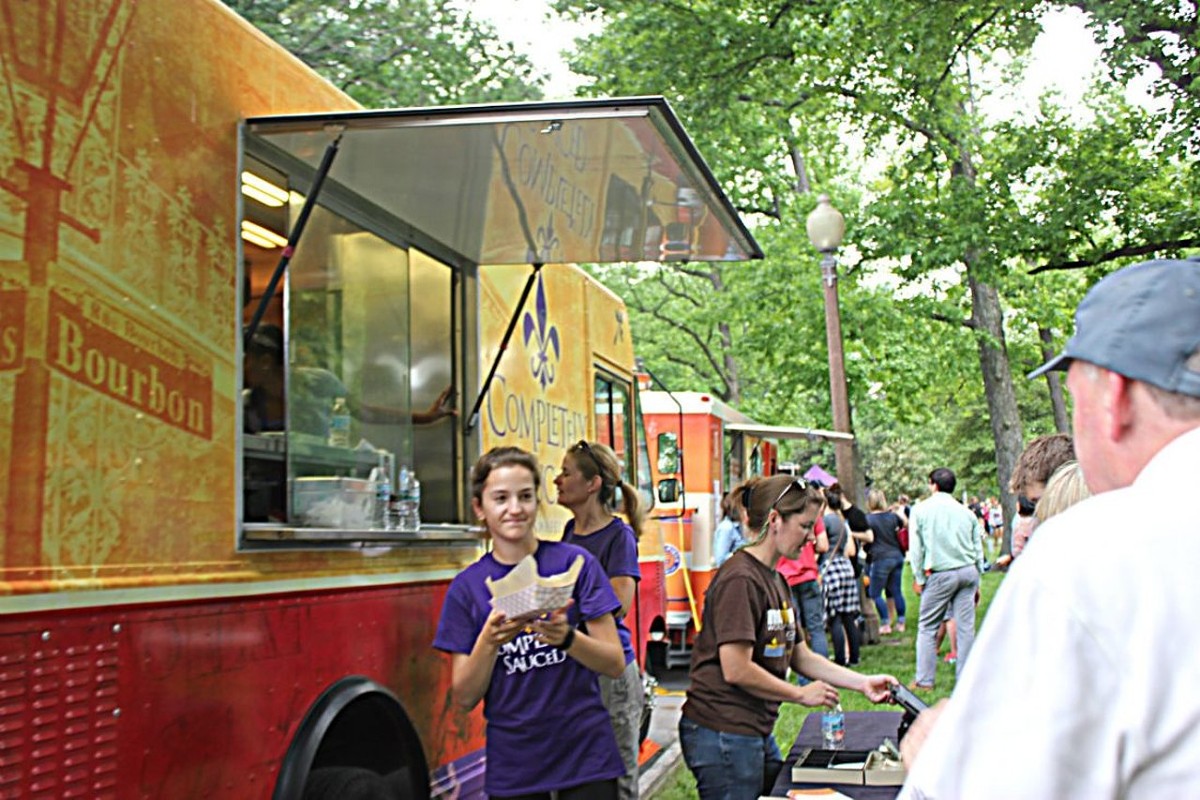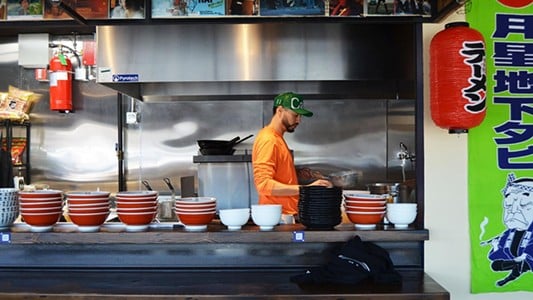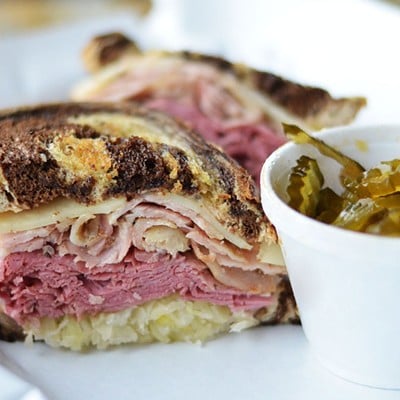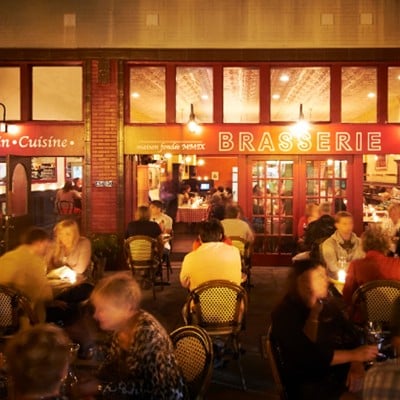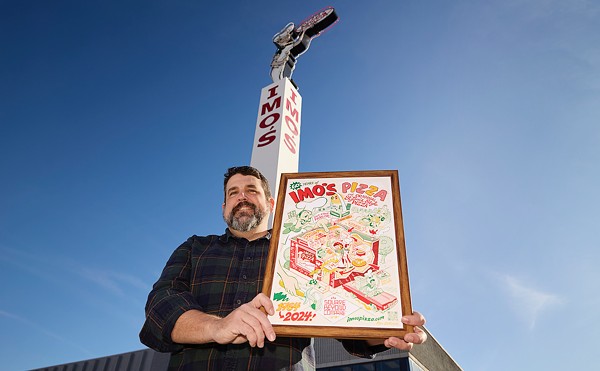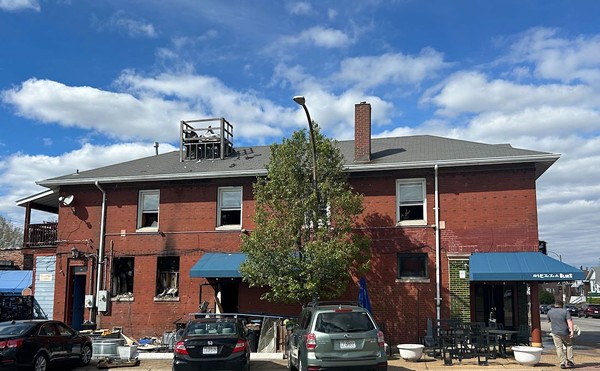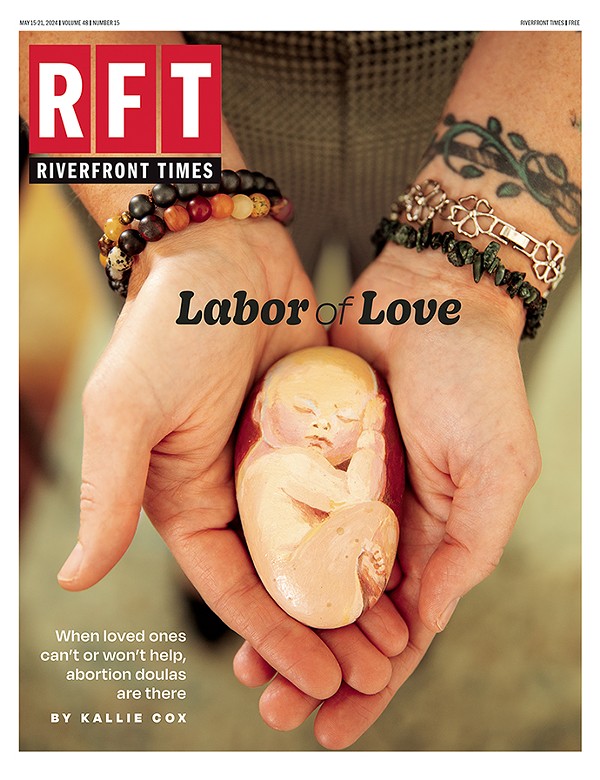A committee meeting Monday at the St. Louis Board of Aldermen elicited head scratches, face palms and disbelief from officials as food truck operators detailed the amount of bureaucracy and red tape they have to navigate to stay in business.
To operate in the City of St. Louis, food truck owners have to go through an arduous, 10-step process that can take months. And, they have to do this every year, operators told aldermen.
The city’s 10 requirements to operate at a bare minimum level include two permits, a vending license, a photo of the truck, passport photos of the applicant and every single employee, a signed copy of city rules and regulations, a $500 payment, proof of vehicle insurance, license and registration, and a copy of the City of St. Louis building division registration liability insurance.
Each employee is then required to wear a badge with the photo and permit at all times while working. This includes temporary employees. These “badges” are handwritten with the photo taped on, one speaker explained.
The 10-step process can take months and in addition to losing out on the fees and costs associated with these permits, vendors also lose money from missing work and having to close down to file paperwork or complete inspections.
The real kicker is that even after jumping through all of these hoops, with the exception of special events (which vendors typically have to pay event organizers to attend), food trucks are largely limited to two blocks in the city, as Kelly Croy with the St. Louis Development Corporation explained.
Committee members were shocked. When it was time for questions, Ward 8 Alderwoman Cara Spencer began with this: “My first question is, are you — and then there’s an expletive — kidding me.”
Ward 4 Alderman Bret Narayan seconded this frustration, saying, “The idea that you would do all of that and then be permitted to work on a 500-yard stretch of street and then at special events would be incredibly frustrating.” He added that he hopes the committee will consider updates to where food trucks can operate.
St. Louis Food Truck Association President Bryan Scott also pointed to the limited area owners are allowed to vend as a major problem. He said once food truck operators receive a permit they also receive a map …. one that’s mostly blocked off, showing areas where food trucks aren’t permitted, like within a half mile of Busch Stadium or the convention center.
“It makes it really difficult to understand, ‘How can we do business in the City of St. Louis?’” Scott says. “Having grown up in the City of St. Louis, in north St. Louis on Euclid Avenue for most of my life and only having access to McDonald’s and Subway and Burger King, a food truck with real food would go a long way in eliminating the food deserts that we have and the malnutrition that we have in the city proper.”
In April, Ward 14 Alderman Rasheen Aldridge introduced Board Bill 14 to streamline the process to operate a food truck in the city. Board Bill 14 was first read on April 26 and has been assigned the Special Committee on Reducing Red Tape.
This bill would eliminate some of the strict vending zones that food trucks are currently limited to within the city, would extend the hours vendors are permitted to operate and would delete a clause that currently prohibits food trucks from operating within 150 feet of another licensed vendor.
On Monday, the committee held a listening session with food truck owners where they heard their concerns about the current permitting and operations processes. They noted that the Board of Aldermen last passed legislation dealing with food trucks in 2022.
In a previous interview with the Riverfront Times, Aldridge explained that he hopes Board Bill 14 will bring growth to the city. He noted that food trucks currently have to shut down service by 11 p.m.
“Right now, food trucks have a very restricted amount of locations where they can actually be able to go out and vend,” he says. “So not only extending those hours in the City of St. Louis, but also making it a little bit more accessible for food trucks to be able to operate.”
When people are enjoying the city’s nightlife, sometimes they’d like to grab something from a food truck instead of waiting in line at a restaurant. This isn’t always possible with the current limited hours for permitted trucks. Aldridge has proposed extending hours until 2 a.m.
“it's just another avenue for, I think, other opportunities for the city to be able to look out for not just business owners themselves, but innovative ways that will make people want to just enjoy our city a little bit more,” he says.
While in the past some bars and restaurants demonized food trucks and viewed them as competition, some now seek out food trucks to draw in business. One example is Venice Cafe who Croy explained wanted a food truck outside of their business because they don’t serve food.
This turned out to be a nearly impossible ask, Croy explained to the committee, because unlike other cities, St. Louis does not have a temporary zoning permit to allow vendors to set up on private property. Sometimes, Croy explained, she is able to help the person obtain a special event permit to temporarily set up somewhere, but other times they are forced into a conditional use hearing that drags the process out for weeks.
Follow us: Apple News | Google News | NewsBreak | Reddit | Instagram | Facebook | Twitter | Or sign up for our RSS Feed

